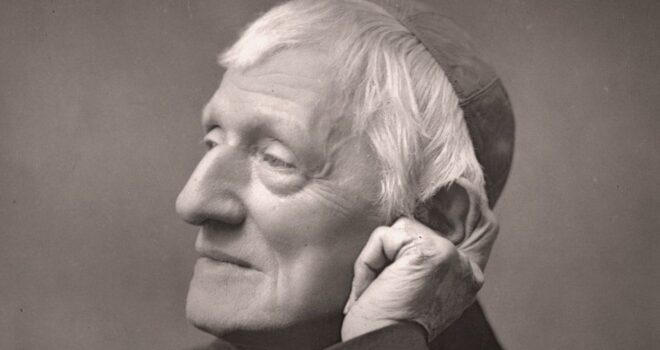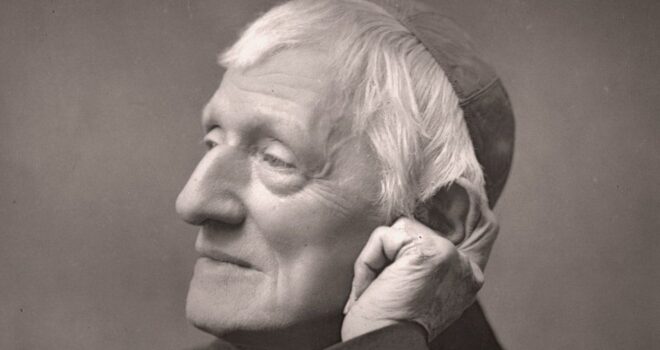The following are one-sentence blurbs that describe a few of the most current New York Times bestselling nonfiction books.
“An examination of the cognitive skills of rethinking and unlearning that could be used to adapt to a rapidly changing world.”
“An approach to dealing with trauma that shifts an essential question used to investigate it.”
“A botanist and member of the Citizen Potawatomi Nation espouses having an understanding and appreciation of plants and animals.”
“The multiple award-winning actress describes the difficulties she encountered before claiming her sense of self and achieving professional success.”
Based on the types of books that people are buying (and possibly reading), we could argue that the sub-genre of “self-help” is perhaps the most sought after. The lens through which one wants to “cure” oneself, be it un-education, self-therapy, an appreciation of nature, or becoming successful in your field of work; in the end we’re all searching for one thing – how to be perfect.
It’s not an outlandish thing to want to be perfect.
Perfectionists have no problem with the idea.
Nor does God who literally told us to “Be perfect, therefore, as your Heavenly Father is perfect” (Mat. 5:48).
While most might think perfectionism is a horrible thing for our self-image, which it can be if interpreted in a worldly sense, the truth of the matter is that perfection is possible, and it’s found in God, in whom we are constantly reborn (Jn. 3:3) so that it is no longer we who live, but Christ within us (Gal. 2:20-21).
When asked what perfection looked like during his time, (1801-1890 ), St. John Henry Newman responded:
“If you ask me what you are to do in order to be perfect, I say, first—Do not lie in bed beyond the due time of rising; give your first thoughts to God; make a good visit to the Blessed Sacrament; say the Angelus devoutly; eat and drink to God’s glory; say the Rosary well; be recollected; keep out bad thoughts; make your evening meditation well; examine yourself daily; go to bed in good time, and you are already perfect.”
How does that recipe fair in today’s world?
Remarkably well, actually.
Allow me to elaborate:
Step 1: Wake Up On Time
When it comes to sleep, there are two winged creatures that most people categorically resemble: night owls and early birds. Whether you are catching the worm or burning the midnight oil, we all have at least one thing in common when it comes to waking up – we don’t want to.
The scientific term that refers to the groggy feeling we have when waking up is called sleep inertia. Essentially, our brains need a moment to calibrate while transitioning from rest to activity. For most, this transition lasts a few minutes but it can last hours.
Sloth might be the laziest of the seven deadly sins, but it strikes first. Sleep inertia comes for us all regardless of whether we meet our sleep quota or not. It’s is the first temptation we face each day.
“…it is the hour now for you to awake from sleep. For our salvation is nearer now than when we first believed” (Rom. 13:11).
Step 2: Pray First Thing in the Morning
To defend ourselves against hitting the snooze button, Newman suggests we make our first act of the day a prayer. Now, if we read the NYT bestsellers they’ll tell us to “meditate” or “do yoga” or “practice mindfulness” which are all great intentions; they just don’t go far enough.
Prayer is uniting our souls with God in thought and will. Sometimes we do this with words, other times we do this with sense or action. When we lift our mind in a heavenly assent to God, He meets us halfway. Together, we look at what we need to do that day through Divine vision, a mystical state of togetherness with God that, with hopes, won’t dissipate as we make our way through our daily tasks.
“…in the morning you will hear my voice;
in the morning I will plead before you and wait” (Psalm 5:4).
Step 3: Visit the Adoration Chapel and/or Attend Daily Mass
The requirements of being human can, and should, be a lot. To survive, to flourish, to have peace of mind, to gain wisdom, all require hard work. Whether that is the toddler’s play, the student’s study, the worker’s tasks, the jobless’ search for employment, or the retired worker’s activities, each day is filled with worries, pressures, and burdens. It’s all enough for us to believe the words of tech guru Andrew Grove, “Only the paranoid survive.”
Perhaps that’s why, when we pray the Hail Holy Queen, we refer to ourselves as “poor banished children of Eve.”
And yet, there’s hope.
A little glimpse of heaven in a world so devoid of its eternal presence, yet so illumined by it.
In adoration and, if possible, attendance at daily Mass, we are transported to the very center of heaven – Christ sacramentalized in the Eucharist. When we take time to gaze upon His face, to spend intentional time with Him in an adoration chapel or at Mass, we bring ourselves to the forefront of our eternity while still existing within space and time.
“Come to me, all you who labor and are burdened, and I will give you rest” (Mat. 11:28).
Step 4: Pray the Angelus
I’ll admit, this is probably the most difficult step for me, personally. I’m a husband, a father to seven children, and a teacher to more than 80 students with whom I meet each day. My life is one task to complete after another, usually with the well-being of someone else as the impetus of every action. In most cases, my life is not my own, which would reflect in my constantly changing schedule can shift at any given moment.
The traditional hours of praying the Angelus are 9am, noon, and 6pm. I never know where I’ll be nor what I’ll be doing at those times which makes praying this beautiful prayer so difficult. I could set alarms on my phone, but then they’d go off at inopportune times. It’s something that I struggle with.
And so, I relegate my praying of the Angelus to when I am capable of praying it. I figure that, since I don’t live in a small town where the Church bells ring every hour to remind me to pray, that it’s okay to do it on my own time.
Not sure how to pray the angelus? Click here to learn how.
“Mary said, ‘Behold, I am the handmaid of the Lord. May it be done to me according to your word’” (Lk. 1:38).
Step 5: Practice Mysticism
Newman’s next step is to “eat and drink of God’s glory,” which is open for interpretation of all kinds. Did he mean that we should take our meals in gratitude of God’s blessings? Or did he want us to practice the presence of God in all that we do? I believe he meant the latter.
The world is dominated by the senses. It’s the only means by which we are able to attain knowledge. We need to see, smell, touch, hear, and taste truth before we can fully understand it. The senses are the gateway through which we understand first the world, then, if we persevere, God.
This perseverance is known as mysticism, and it’s the sixth sense that all humans who strive for holiness attain. Through mysticism, we are able to see through the physical and into the spiritual. The hug we receive from a loved one is felt physically, but the sense of love that sparked it is understood through mysticism. The apple we eat tastes delicious, but more delicious is the mystic understanding that God created it to nourish our bodies and souls. The deeper you look at a thing, or an idea, the more it reveals God’s masterful plan for your life.
“By faith we understand that the universe was ordered by the word of God, so that what is visible came into being through the invisible” (Heb. 11:3).
Step 6: Pray the Rosary
Aside from the Mass and the Divine Office, there is no more important prayer than the Holy Rosary. It’s our safety rope that binds us to Mary, the Mother of God, who pulls us into the heavens with every bead we recite. It’s more than an incantation, more than a mindless rattling off of scripted words– it’s a union of mental, physical, and spiritual prayer that destroys vice, erases the effects of sins, and brings us together as sons and daughters of a spiritual Mother who loves us.
If you are interested in learning how to pray the rosary, start here. If you are looking to take your rosary praying to the next level, click here.
“Then the dragon became angry with the woman and went off to wage war against the rest of her offspring, those who keep God’s commandments and bear witness to Jesus” (Rev. 12:17).
Step 7: Pause and Reflect
Street signs are nice because they create order for traffic. Cars know when to stop and go, slow down, yield, and which roads lead to where. But in the spiritual life, it can be like the WIld-Wild West as there aren’t any signs that help point us in the right direction, save perhaps our conscience.
That’s why it is important to analyze your spiritual state from time to time on a daily basis. St. John Baptist De La Salle, founder of the Lasallian order, instructed his brothers on how to do this in the followng way:
“Do you ever begin work, move from one action to another, or enter or leave the exercise room or dormitory without saying a prayer? Do you allow a considerable time, half an hour or an hour, to pass without saying a prayer, even if only to raise your heart to God?” (De La Salle, Collection of Various Short Treatises).
It’s important that we lift our hearts to God as often as possible, not because it need be a manic obsession, but rather a peaceful accompaniment to the goings-on of our day. It is easy to lose God amidst the constant activity of our days; it’s hard to get lost in God.
“Trust in the Lord with all your heart, and do not lean on your own understanding. In all your ways acknowledge him, and he will make straight your paths (Prov. 3:5-6).
Step 8: Fight Temptation
Next, Newman tells us to “keep out bad thoughts.” Thanks to the fact that we were born into original sin, this act is almost totally impossible. Bad thoughts enter our minds through tributaries in hopes that they will pollute our spiritual rivers. The pornographic image appears in our Facebook feed, and the lustful thoughts knock at the door. The black Honda cuts us off while changing lanes, and rage seeps into our souls. The neighbor just came back from a vacation you could never afford with a tan, a smile, and a new car and envy taps on our window, hoping we’re home.
We don’t negotiate with terrorists.
We don’t entertain demons.
We don’t allow into our houses those who will rob us.
“Resist the devil, and he will flee from you. Draw near to God, and he will draw near to you. Cleanse your hands, you sinners, and purify your hearts, you of two minds” (Jam. 4:7-8).
Step 9: Examine Your Conscience
in the Evening, the mind is tired, but reflective. This occurs especially when we’ve placed our heads on our pillows and look back on that day’s events. Did we do all that needed to be done? Would God be pleased with my behavior throughout the day? Have I shown love to those He’s called me to serve?
In the Divine Office, Night Prayer is when priests, religious, and lay men and women who practice this form of prayer call to mind not only their sins, but also their triumphs. This is an important step in spiritual growth because it serves much like an athlete looks at their game statistics: if we don’t see the data, we don’t know how well (or poor) we did.
“If we acknowledge our sins, he is faithful and just and will forgive our sins and cleanse us from every wrongdoing” (1 Jn. 1:9).
Step 10: Don’t Stay Up Too Late
Just as we began with sleep, so too, do we end with sleep.
The Bible is full of holy sleepers.
God passed on imperative messages to Isaac (Gen. 26:24), Nathan (2 Sam. 7:4), Daniel (Daniel 2:19), Paul (Acts 16:9, 18:9, 23:11), Old Testament Joseph (so. many.dreams.) and foster Father of Jesus Joseph (Mat. 1:20, 2:13) while they were asleep. And while there are a few verses of the “be on alert…in case the he should come suddenly and find you asleep” variety within Sacred Scripture, the truth is sleep is just as inevitable as waking up. Therefore, it is part of the human condition and, if done correctly, an act of submission to God.
The final words in Night Prayer in the Liturgy of the Hours are “May the all-powerful Lord grant us a restful night and a peaceful death.” Sleep is a mini-death of sorts in that we never know if the Lord will call us to mission through our dreams or to His heavenly paradise through our death. Each night, so long as we rest with a clean conscience, we can say with Solomon “When you lie down, you will not be afraid, when you rest, your sleep will be sweet” (Prov. 3:24).
—
The New York Times nonfiction best-seller list will continue to showcase “self-help” books that theorize on how to live a “perfect” life through worldly lenses.
Such books can only teach us so much.
In reality, the timeless response of Newman (the entirety of its 81 words) is all you need to peer into the depths of eternal holiness.
✠












